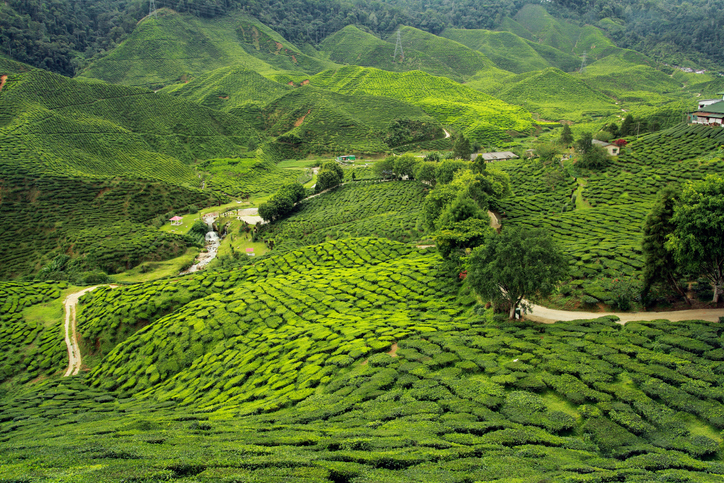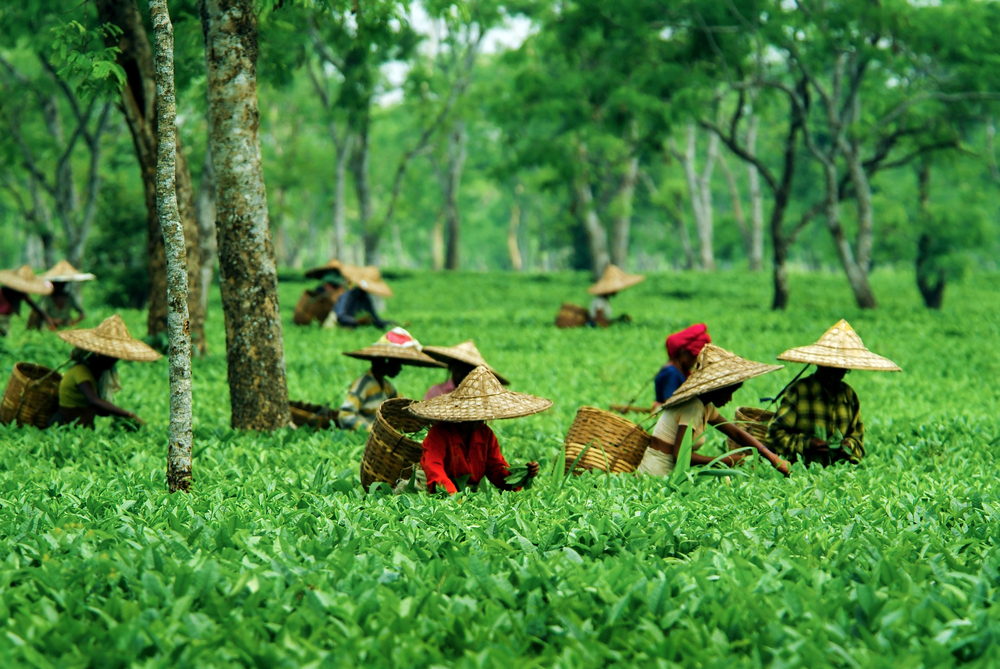Introduction:
We are familiar with the love that an Indian has for a steaming cup of tea. Thus, it is of no surprise that Indian tea is among the finest in the world. Because of favouring geographical conditions, heavy investment in tea processing units, etc. India is the second-largest producer of tea.
Not only that, India is one of the world’s largest consumers of tea as well with about three-fourths of its total produce consumed locally. The main tea growing regions in India are Darjeeling, Assam, and Nilgiris.
Though, as a result of climate change, many people’s livelihoods and survival and the biodiversity that the tea garden supports are in jeopardy.
Issues Faced by Tea Growers:

Many tea growers, such as Makaibari and Selim Hill, are experiencing numerous issues related to the amount of tea produced and the management of their gardens as a result of climate change, including:
- Rainfall and wind patterns have changed, resulting in shorter rainy seasons of roughly 7 and a half months to 5 and a half months.
- This has also posed a problem of irregular rainfall and unnatural landslides.
- Other macro factors include the construction of dams in large numbers, leading to more seismological activity, including earthquakes.
- The region’s ecology was already facing deforestation, making the seismically sensitive area vulnerable to top-soil loss and landslides.
- Climate change is bearing down on tea yields, affecting the livelihoods of thousands in the industry.
- Changes in the melting of the Himalayan glaciers are generating temperature spikes in Darjeeling, which has resulted in the development of insects that destroy the crop as global warming intensifies due to increased carbon emissions.
- A lack of rainfall during dryer winters and unseasonal floods during plucking seasons have drastically changed the harvesting window, reducing an eight-month harvest period to just six.
- Uniquely, Darjeeling is the world’s only region that produces teas in four seasonal harvests. While each has its distinctive characteristics, they share one common thread, i.e. the regularity of the seasons themselves. Because of prolonged droughts and unusual rain, tea growers are facing erratic and shrinking yields.
- Tea farmers are also dealing with commercial challenges such as a declining market, old-school management techniques, the involvement of middlemen, and a lack of attention to the home market, in addition to climate-related issues.
How Tea Garden Owners Are Dealing with The Issues:
It becomes very important that such environmental challenges should be tackled in a way that is both environmentally sustainable and beneficial for the people involved in tea production. A fundamental change and a multi-stakeholder approach have been implemented by the tea garden owners that involve garden owners, local communities, conscious consumers and the region’s ecology. For instance:
- To promote the biodiversity of the region, Selim Hill has adopted a site-specific strategy that involves creating a wildlife corridor for animals to roam freely
- Tea garden owners that involve garden owners, local communities, conscious consumers and the region’s ecology have implemented a fundamental change and a multi-stakeholder approach. To boost the business, new methods of delivery and interaction with consumers are being adopted by tea garden owners such as Dorje Teas. This way the need for middlemen is eliminated and the domestic market is also being explored.
- Institutions that provide space and opportunity for photographers, filmmakers, journalists, researchers, writers, wildlife enthusiasts and students to work with tea plantations is a new way of promoting tourism for tea plantation sites.
The promotion of a sustainable way of doing business becomes imperative if one wishes to survive in times of climate change. But it has become even more important to curb the growing climate change, which can only be done if effective eco-friendly techniques are used in every sphere of life.
Akansha Jain

